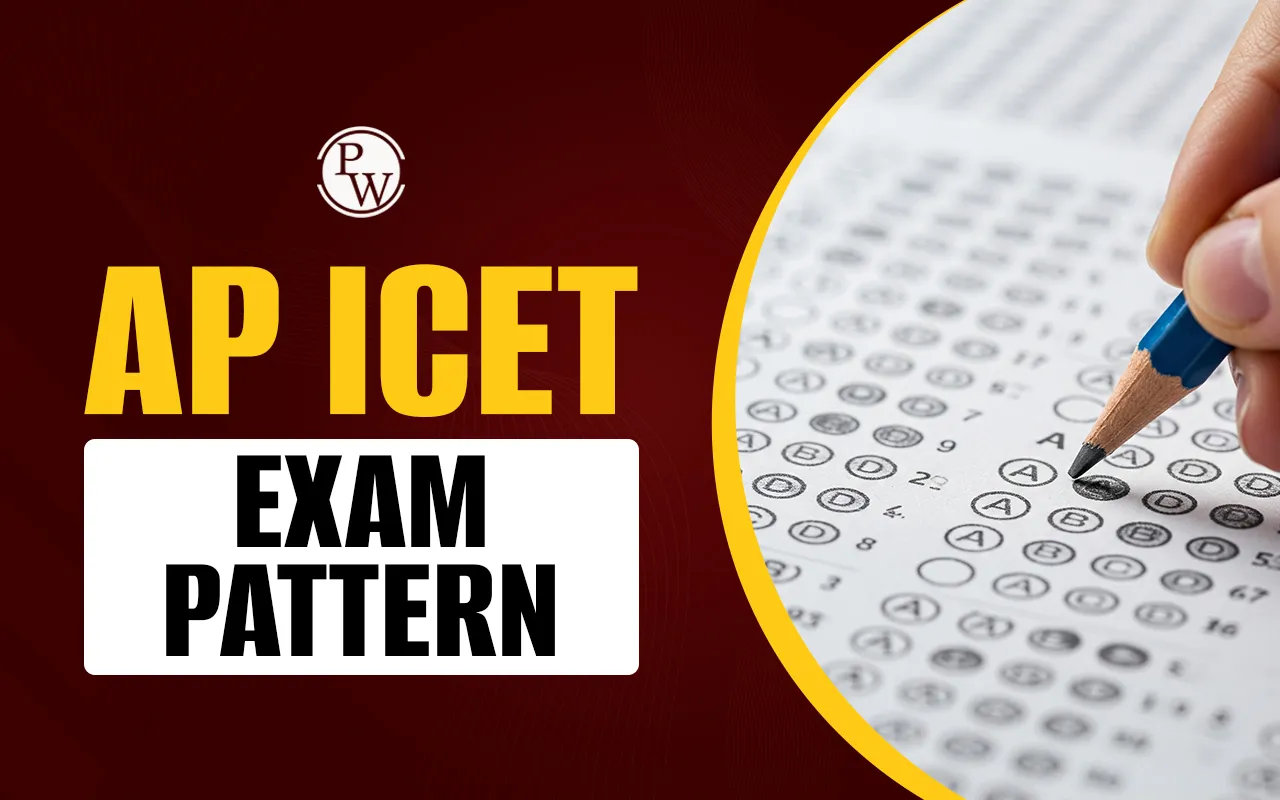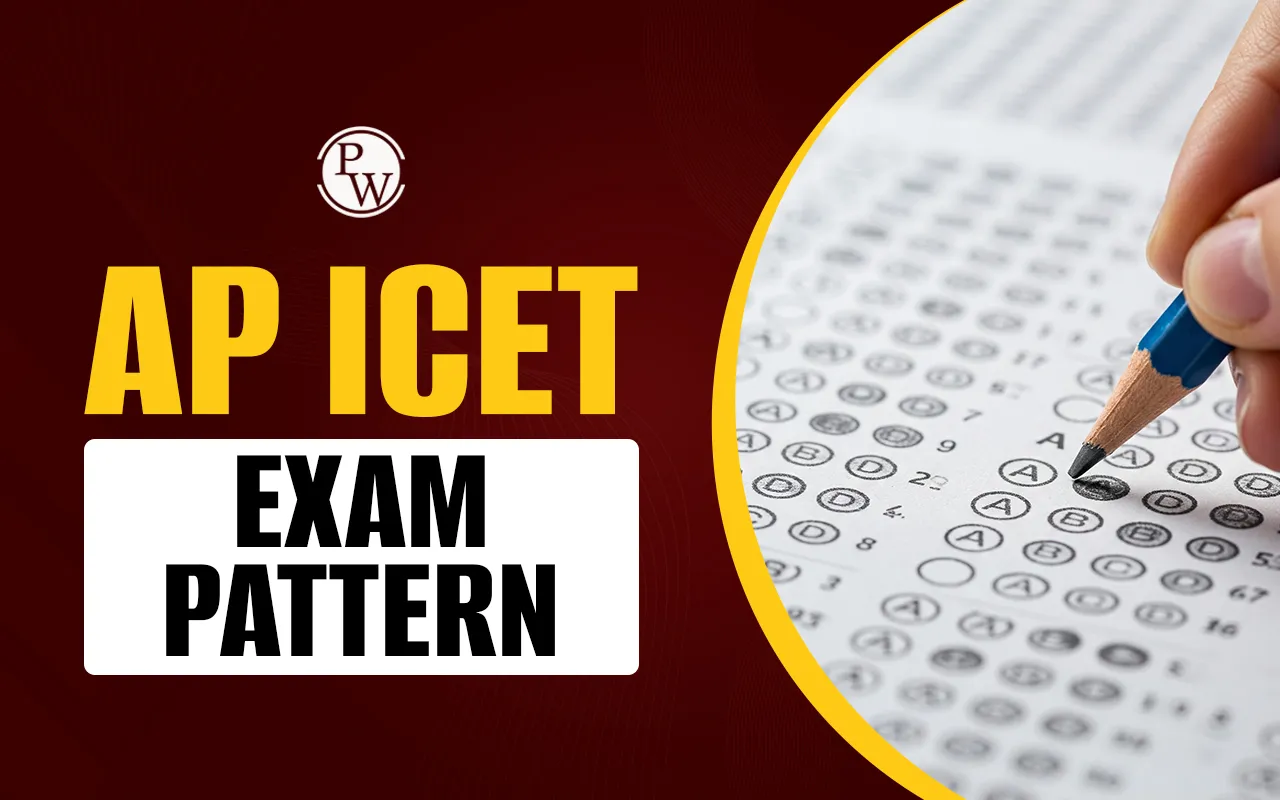

AP ICET Exam Pattern: The Andhra Pradesh Integrated Common Entrance Test (AP ICET) is one of the most important entrance exams for candidates looking to pursue an MBA or MCA degree from colleges across Andhra Pradesh. It is conducted every year by Sri Krishnadevaraya University, Anantapur, on behalf of Andhra Pradesh State Council of Higher Education (APSCHE).
To do well in the exam, candidates need to understand the AP ICET exam pattern, syllabus, and marking scheme. Knowing these details helps in effective preparation for the exam and to score good marks.
AP ICET Exam Pattern Overview
AP ICET is a Computer-Based Test (CBT), where students take the exam online at test centres. The exam is conducted for 2 hours and 30 minutes (150 minutes).
It has a total of 200 multiple-choice questions (MCQs). Each question has four options, and students must choose one correct answer. Each correct answer carries 1 mark, and there is no negative marking for wrong answers. An overview of the AP ICET Exam Pattern is provided in the table below:
| AP ICET Exam Pattern Overview | |
| Particulars | Details |
| Exam Mode | Computer-Based Test (Online) |
| Duration | 150 minutes |
| Total Questions | 200 |
| Total Marks | 200 |
| Question Type | Multiple Choice Questions (MCQs) |
| Marking Scheme | +1 for each correct answer |
| Negative Marking | None |
| Medium | English and Telugu (Communication Ability section is in English only) |
Why Understanding AP ICET Exam Pattern is Important?
Knowing the exam pattern is the first step in any preparation journey. It also helps students avoid wasting time on topics that are not part of the syllabus. Understanding the AP ICET Exam Pattern is important because:
-
Identify which subjects to focus on.
-
Plan their study schedule.
-
Avoid surprises during the exam.
-
Build confidence through regular practice.
Section Wise AP ICET Exam Pattern 2026
AP ICET 2026 exam is expected to follow a similar pattern as in previous years. The official notification will be released by APSCHE in early 2026. However, based on trends from 2024 and 2025, the exam structure will likely remain unchanged.
The total marks are 200. All questions are objective in nature, and students can move between sections freely during the test since there is no sectional time limit. The exam is divided into three main sections, details of which are provided in the table below:
| AP ICET Exam Pattern 2026 | ||
| Sections | Name | No. of Questions |
| A | Analytical Ability | 75 |
| B | Mathematical Ability | 55 |
| C | Communication Ability | 70 |
AP ICET Exam Pattern for MBA
Candidates looking to pursue an MBA through the AP ICET exam must pay special attention to the Analytical and Communication Ability sections. These areas are highly important for management studies because MBA courses focus on logical thinking, problem-solving, and business communication.
Importance of Each Section for MBA Admission
-
Analytical Ability (75 Marks): Helps test reasoning and logical decision-making, which are vital for solving business problems.
-
Mathematical Ability (55 Marks): Checks numerical accuracy, which is useful for subjects like finance, statistics, and economics.
-
Communication Ability (70 Marks): Evaluates command of English, needed for group discussions, interviews, and business communication.
Section wise AP ICET Syllabus 2026
AP ICET syllabus 2026 is divided into three sections: Analytical Ability, Mathematical Ability, and Communication Ability. Below, we’ve mentioned the detailed list of important topics in each section.
| AP ICET Syllabus 2026 | |
| Sections | Details |
| Analytical Ability |
|
| Mathematical Ability |
|
| Communication Ability |
|
Tips to Score Well in AP ICET Exam 2026
AP ICET Exam is an important test for candidates looking to get admission into MBA and MCA courses in the colleges of Andhra Pradesh. Candidates need to prepare all three sections of the AP ICET Exam Pattern to score well and get admission into the preferred colleges. Some of the tips for candidates to score well in the AP ICET Exam are as follows:
-
Practice Daily: Regular practice improves speed and accuracy.
-
Learn Shortcuts: Use simple tricks for quick calculation in maths.
-
Stay Updated: Read newspapers and articles to improve vocabulary.
-
Mock Tests: Take at least 10–12 mock tests before the real exam.
-
Revise Weak Areas: Focus on improving topics where you often make mistakes.
-
Stay Calm: A peaceful mind performs better under time pressure.
